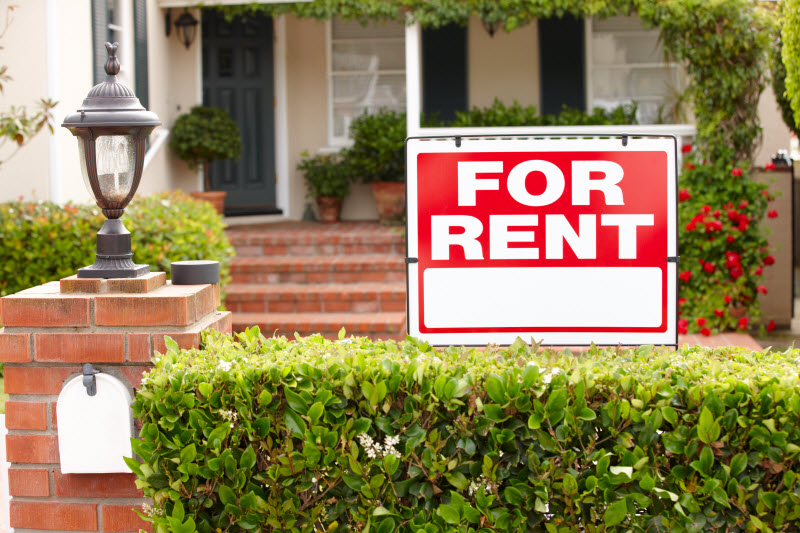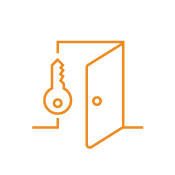6 tips to avoid landlord liability problems

It’s easy to see the attraction of owning a rental property. After all, depending on the location and type of property you own, the monthly rent could cover mortgage payments, taxes, and even insurance. When you decide to sell, you may see a tidy profit if your timing is right.
On the other side of being a landlord are your legal obligations to your tenants as well as the surrounding community. While each Canadian province and territory has its own tenancy legislation, there are important similarities. Across the board, landlords are legally obliged to ensure that a rental property meets minimum health, safety, housing and maintenance standards. It is the landlord’s responsibility to ensure that the property does not deteriorate below these standards. If it does, you could find yourself in legal hot water.
Here are six common sense ways that you can protect yourself:
1. Be sure before you buy
Your future rental property must not only comply with the rules and regulations for health, safety, housing and maintenance, but also with municipal property standards and zoning bylaws, fire safety regulations and building codes. If the property fails to meet these standards when you purchase it or at any point during the tenancy, you must make necessary repairs.
If the property is not compliant and projected repairs are prohibitively expensive, it’s probably best to keep looking.
2. Screen potential tenants thoroughly
Reliable, responsible tenants are hard to find. In most cases, it pays to have your property empty while you’re searching for the right tenants, rather than to hastily allow questionable tenants to move in. You could spend countless hours trying to evict bad tenants, recover back rent or recoup expenses to repair damages.
You should always carefully screen potential tenants for income, credit history, criminal record and negative references from previous landlords.
But screening tenants is about more than common sense. Not only do you want a good tenant in your property, you also owe it to the neighbours to avoid bringing a person with a history of crime or violence into the community. Courts have found that landlords who fail to screen may be found negligent, and could be liable for any injuries or damages an unscreened, high-risk tenant may cause.
3. Make sure you’re providing a safe living environment
As a landlord, you have a duty to provide your tenants with a home that’s safe and fit to live in. Their safety and comfort is your top priority.
Before tenants move in, put yourself in their shoes. Spend some time in the home – even stay overnight – to check on safety issues that could impact their day-to-day lives.
For example:
- Is there sufficient exterior lighting to enable people to find their way around at night?
- Do all exterior doors and windows close tightly and lock securely?
- Is there a safe exit from the basement in case of emergency?
- Do all the appliances (washer, dryer, fridge, dishwasher, stove, garbage disposal) work properly? Are the dryer vents clean? Do you have operation manuals available for tenants to refer to?
- Is the fireplace functional? Has the chimney been cleaned?
- Has the furnace been checked and cleaned? If you have a digital thermometer, is there a manual for tenants to refer to?
- If there is a boiler in the house, has it been checked? Have you provided operating instructions?
- Are the handrails and stairs secure?
- Do smoke and carbon monoxide detectors work?
- If there is a septic system, is it cleaned out and functioning properly?
- If the house has a pool or hot tub, are they clean and functional? Are they protected from intruders and small children with fences and security locks?
- Check the trees on the property. Are they solidly rooted? If there are loose or weak branches that could fall and injure someone, have them removed.
After tenants move in, conduct regular inspections and maintenance. This is to protect both your tenants and residents in the surrounding area. You want to catch any deteriorating conditions before they become hazardous. You also want to make sure that your tenants are living responsibly and safely in the house.
Create a property inspection checklist, and add to it if necessary. It can also serve as evidence that you are diligent in caring for the property. Be responsive to any concerns your tenants may have about security and repairs.
Here are some things to check routinely:
- Smoke/carbon monoxide detectors
- Debris in halls or stairwells that could cause a fall
- Loose handrails, worn and/or creaky stairs
- Pooling water in the basement
- Faulty door and window locks
- Hazardous materials in storage or in the basement
- Laundry vents, hoses that need repair
- Unsafe use of extension cords
- Sidewalks that are icy or snowy
4. Screen contractors and maintenance workers
Screening contractors or employees that need to conduct work on your rental property is a crucial step in avoiding liability. Be particularly diligent screening people who will have access to the keys or tenants’ personal or financial information.
If you need to hire contractors, have a written contract that clearly spells out the duties of each party, and make sure they carry their own liability insurance.
Inform your tenants well in advance that there will be work carried out on the property so they can be prepared. They may want to be absent or take steps to protect their belongings. If possible, plan to be in attendance while the service or work is being performed.
5. Maintain tight records
By law, you are required to keep records and receipts for all financial transactions relating to your rental property including rent paid, and repairs and service conducted on the property.
In addition, it's important to document and track the condition of the rental premises. When a tenant moves in, complete an initial inspection of the premises and have both parties sign and keep a copy of the property inspection list. You’ll want to refer back to it when your tenant moves out.
6. Protect yourself with the right insurance
Homeowners insurance is not adequate for a rental property. Landlords need a rental property insurance policy that not only protects the property from a large-scale event, such as a fire, but also from tenant injury or loss of life as a result of a problem with your property. If someone falls down the stairs due to a loose handrail, you could face litigation and possibly a large payout. At a minimum, you should carry property and casualty, general liability and landlord liability coverage.
Owning rental properties can be a full-time job. For landlords who understand the rules and take responsibility for the safety and protection of their tenants and local residents, the pay-off could be well worth the effort.







